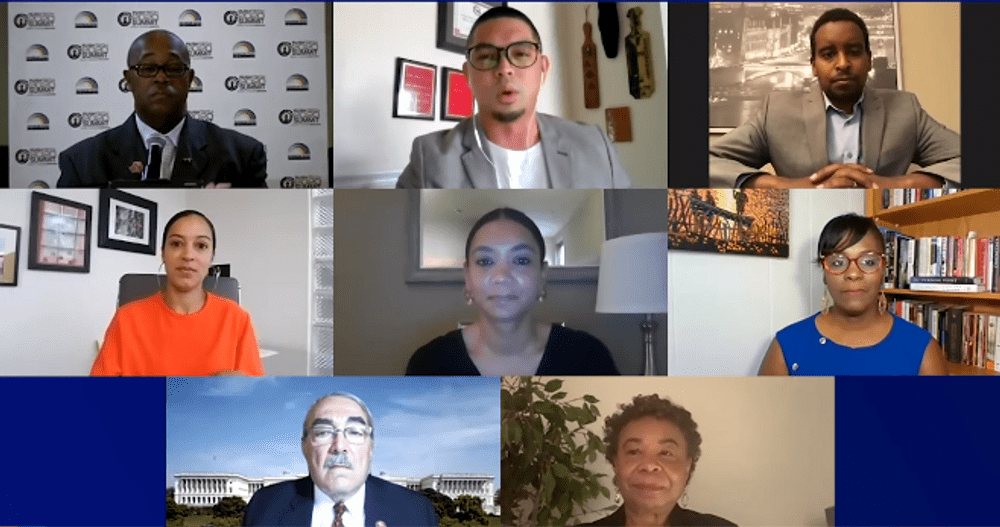Both Pipeline and Retention Issues Have Resulted in Lack of African American Representation in the Tech Industry
October 1, 2020 — On Thursday, as part of the Congressional Black Caucus Foundation’s 50th annual Legislative Conference, a panel of experts on the intersection of technology, race, and structural inequity, gathered virtually to discuss the future of inclusivity and diversity in the tech industry. “
Jericho Casper

October 1, 2020 — On Thursday, as part of the Congressional Black Caucus Foundation’s 50th annual Legislative Conference, a panel of experts on the intersection of technology, race, and structural inequity, gathered virtually to discuss the future of inclusivity and diversity in the tech industry.
“African American’s, specifically African American women, are notoriously underrepresented in the tech industry,” said Representative G.K. Butterfield, NC-1, “Black Americans only make up 2.2 percent of Silicon Valley’s workforce.”
The panelists found the lack of diversity in the tech industry stems from both systematic pipeline issues, as many Black Americans lack intergenerational wealth and access to capital, and retention issues, as many who enter the tech industry, ultimately choose to leave.
“African Americans could help close America’s tech job gap, said Angela Rye, CEO of IMPACT Strategies. Panelists maintained that as a result of failing to harness this pool of talent, America’s global competitiveness will suffer, as the majority of new jobs will be in the tech sector.
“This sector is not going to do this on their own,” said Rep. Barbara Lee, D-Calif. “Many companies have started unconscious bias initiatives, but they are not doing everything in their power in order to help minority communities thrive.”
Lee detailed an initiative she undertook during the Obama Administration, when she introduce the Computer Science for All Act, a $350 million bill which funded computer science classes for K-12, primarily low-income, African American students. Lee maintained that the “public and private sector must work together,” to help solve pipeline issues.
“While it is critically important to focus on the pipeline issue, we cannot ignore the existing cultural problems,” added Rep. Joe Neguse, D-Colorado. “There is a lack of will to ensure Black Americans have a seat at these tables.”
“The work environment is uncomfortable and as a result many African Americans leave the tech industry after 5 or 6 months, due to the hostility,” said Neguse.
“These companies have significant corporate social responsibility budgets,” said Allison Scott, CEO of the Kapor Center, “we need to see how these resources are being spent.”
“During the height of the Black Lives Matter protests countless displays of solidarity came out of tech community,” added Scott, urging companies’ to stick to their commitments.
She detailed statistics, saying the amount of money spent on supporting Black tech workforces, is critical data to keep track of. “In 2019, $137 billion was invested in 10,000 startups, only 1 percent of which were founded by Black people,” said Scott. “Further, since 2009, only .06 percent of venture funding has gone to Black women.”
“In this moment, tech companies are not neutral,” said Scott, adding that these companies “need to be part of enacting structural change.”









Member discussion